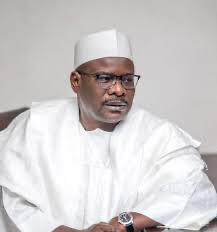Senator Ali Ndume states that the new tax bills currently before the National Assembly will fail unless President Tinubu withdraws them.
In an interview on Channels Television, Ndume highlights the need for further consultation with key stakeholders, including the Northern Governors Forum and the National Economic Council (NEC). He argues that given the current economic hardships in the country, it is not the right time to introduce new taxes.
Ndume says, “As the Northern Governors Forum and the National Economic Council have suggested, the President should engage more with the public. If the bills move forward without adjustments, they will be dead on arrival.”
The senator also criticizes the proposed VAT rate increase, noting that many Nigerians are struggling financially, and businesses are leaving the country, making such tax hikes unaffordable.
He adds that he is actively campaigning against the tax bills within the Senate, gaining support from fellow legislators.
Opposition to the Tax Bills Grows
The proposed tax reform, which includes a derivation-based model for VAT distribution, generates significant opposition, especially from Northern politicians and leaders. Last week, the Northern Governors Forum urges legislators to reject any bill that harms the interests of the Northern region.
The National Economic Council, which includes all 36 state governors and is chaired by the Vice President, also calls for the withdrawal of the bills and further consultation before advancing them in the National Assembly.
However, President Tinubu dismisses these calls, stating that the legislative process allows for public input during hearings and that the bills will proceed as planned.
President Tinubu’s Tax Reform Agenda
In 2023, President Tinubu establishes the Presidential Committee on Fiscal Policy and Tax Reforms, led by former PwC tax expert Taiwo Oyedele. The committee aims to overhaul Nigeria’s tax system, improving efficiency while reducing the burden on individuals and businesses.
Among its proposals is a new withholding tax regime, set to take effect on January 1st, which exempts small businesses, producers, manufacturers, and farmers from withholding tax. The committee also seeks to reduce tax rates for businesses with low profit margins and address the issue of multiple taxation on enterprises, which contributes to Nigeria’s low revenue-to-GDP ratio.













